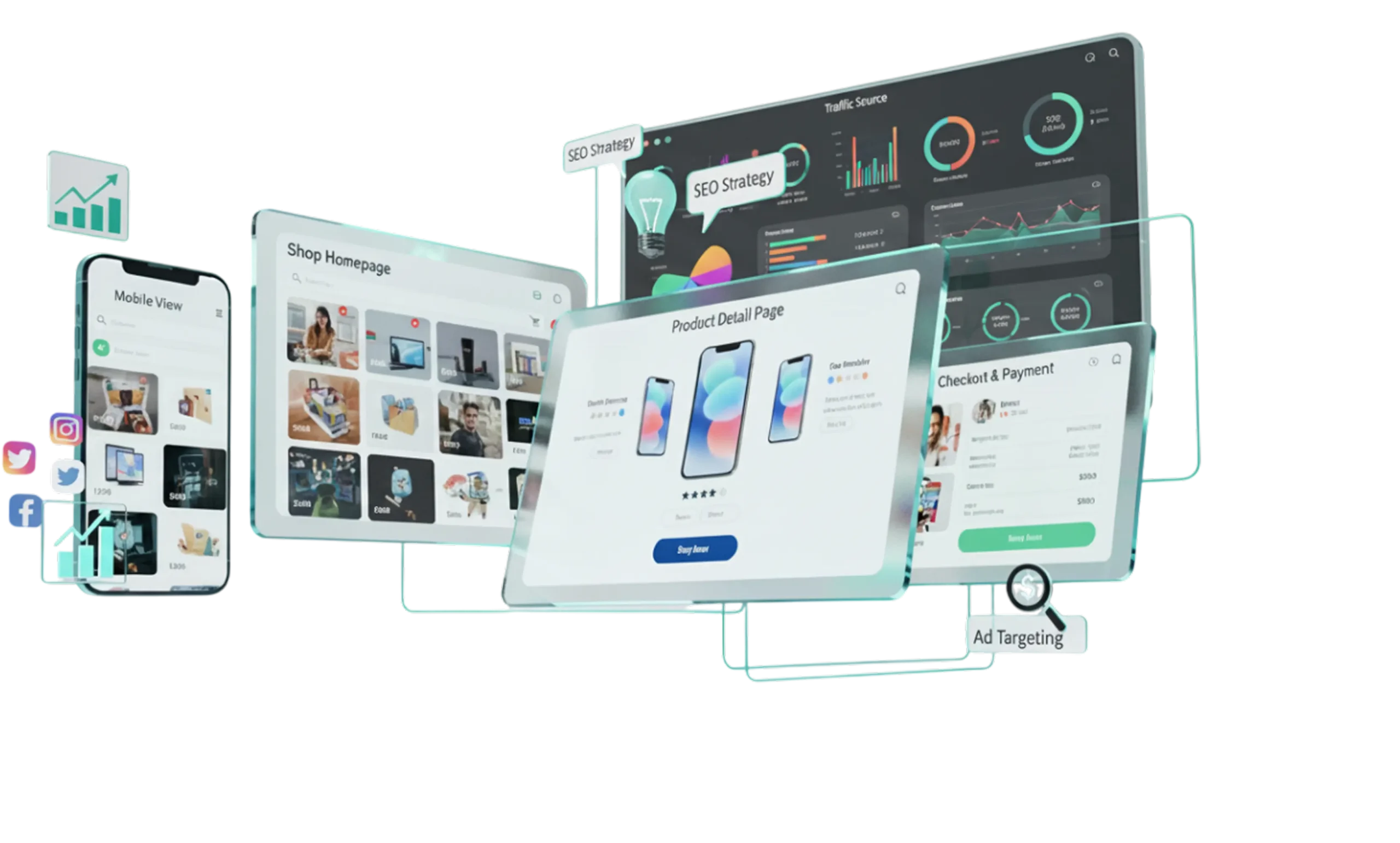
In-House Team 11+ Years Experience
Office 102, 1st floor CBD Bank Building, Near Sharaf DG Metro Station (Exit 1) Al Mankhool - Dubai, UAE


Office 102, 1st floor CBD Bank Building, Near Sharaf DG Metro Station (Exit 1) Al Mankhool - Dubai, UAE

In the rapidly evolving landscape of the digital era, businesses are leveraging innovative strategies to connect with their audience, build brand presence, and drive sales.
Digital marketing has emerged as a powerful tool, encompassing a diverse range of online channels and tactics to reach and engage target customers.


SEO is the foundation of digital marketing, focusing on optimizing a website to rank higher in search engine results. By enhancing visibility, businesses can attract organic traffic and increase their online presence.

Social media platforms have become integral to digital marketing efforts. Businesses utilize platforms like Facebook, Instagram, Twitter, and LinkedIn to connect with their audience, share content, and build brand awareness.

Content is king in the digital realm. Creating valuable, relevant, and consistent content helps businesses establish authority, engage their audience, and drive organic traffic. Content marketing includes blogs, articles, videos, and other forms of media.

Email remains a powerful channel for direct communication with customers. Email marketing campaigns are designed to nurture leads, promote products or services, and maintain customer relationships through personalized and targeted content.

Paid advertising allows businesses to reach a targeted audience through platforms like Google Ads and social media advertising. With PPC, advertisers pay a fee each time their ad is clicked, providing a cost-effective way to drive traffic and conversions.

Influencers have gained significant influence on social media, and businesses collaborate with them to promote their products or services. This form of marketing relies on the credibility and reach of influencers to connect with a wider audience.

Digital marketing is inherently data-driven. Marketers use analytics tools to measure the performance of campaigns, track user behavior, and make informed decisions to optimize strategies for better results.

With the increasing use of smartphones, mobile marketing has become crucial. This includes optimizing websites for mobile, creating mobile apps, and leveraging SMS marketing to reach users on their devices.

CRM systems help businesses manage and analyze customer interactions throughout the customer lifecycle. Integrating CRM with digital marketing efforts enhances customer engagement and enables personalized marketing strategies.